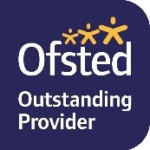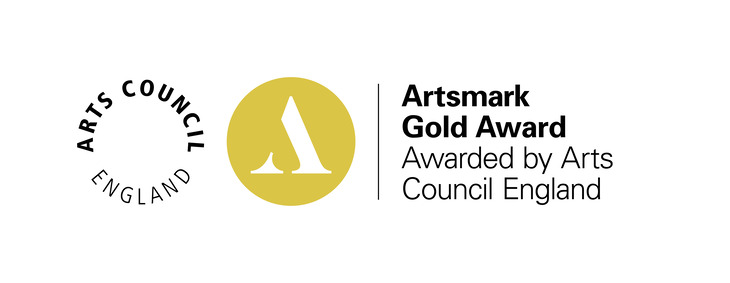WHOLE SCHOOL CURRICULUM INTENTION
Our purpose for Learning at Gosden House
Gosden House provides a warm and vibrant learning environment, where exploration and curiosity are nurtured and valued. Our children are lively and enthusiastic about every opportunity offered and this excitement empowers them to try new things and to engage with learning. Our Curriculum reflects our ambition as a learning school, to prepare our learners who often face the toughest challenges every day, the best chance to improve their life outcomes.
How does Gosden House develop our intentions for learners?
Our curriculum is born of our desire to prepare every pupil to be a confident Gosden Graduate, who will succeed in the workplace and live rewarding, independent lives. We believe collaboration is crucial and work in partnership with families and other agencies to support learning and development of the ‘whole child’. This joint working extends to how we provide a dynamic curriculum with it being organised as four main areas Literacy, Numeracy, Happy & Healthy and Creative & Curious. Each of these curriculum areas has an allocated Development Team whose role it is to work collaboratively to develop their subject area as identified in school development planning priorities. Please see below our ‘Curriculum Development Model’ and ‘Curriculum Development Process’
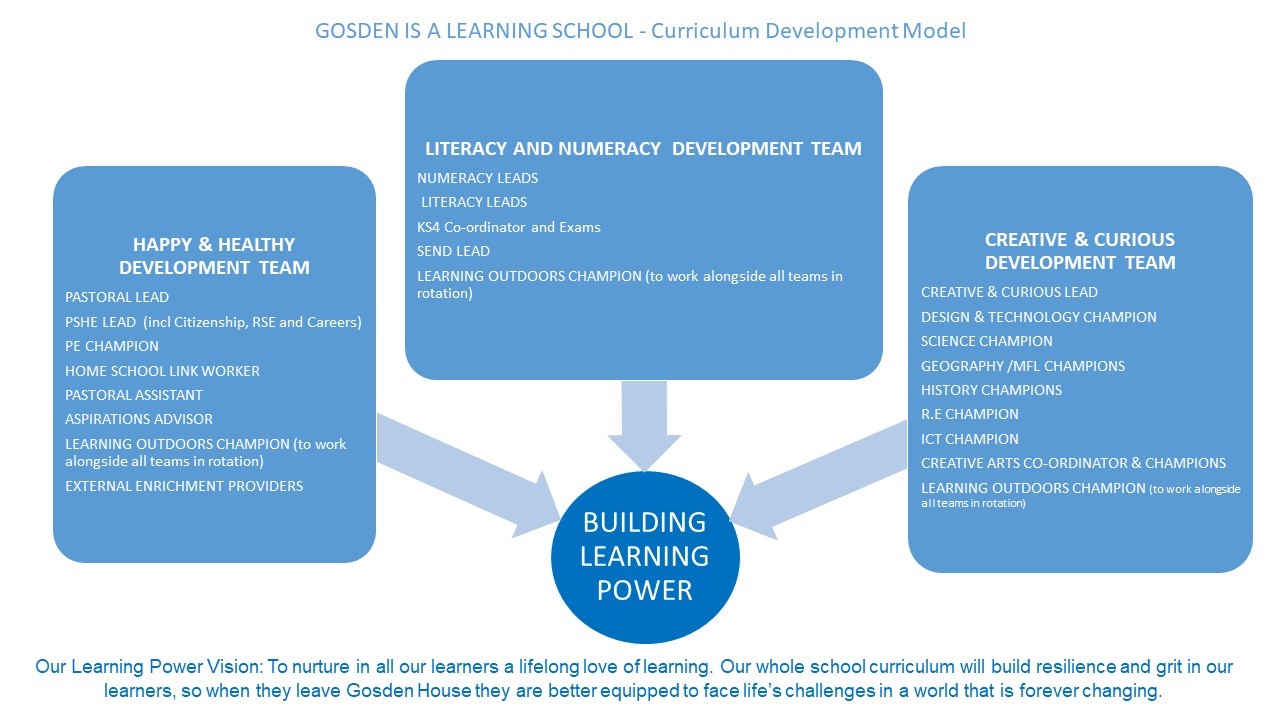
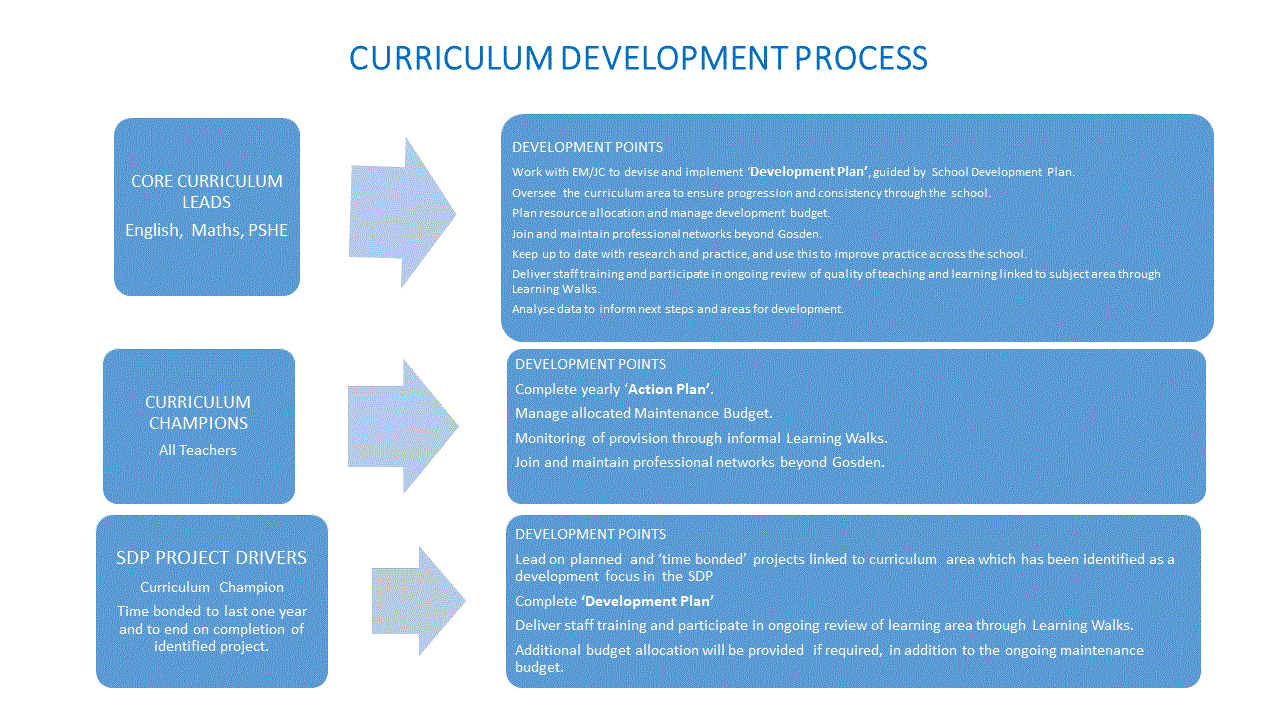
The curriculum is guided by knowledge of our learners, the National Curriculum, possible future student pathways and a desire for purposeful and relevant learning. The curriculum has been created around the concept of a ‘Toolkit for Life’. Through its design and delivery, we work towards shared life tools that we refer to as WIIFM (What’s in it for me), guiding teaching and learning. Within primary the approach to the toolkit is predominantly class based further developed in Secondary, based around 10 Key Life Tools which have been identified as being essential for our learners. Learning is aligned to these, highlighting for our learners the relevance of their learning to real life, rather than just ‘subjects’.
Curriculum Development Targets - Creative & Curious.pptx
Curriculum Development Targets - EYFS.pptx
Curriculum Development Targets - Happy & Healthy.pptx
Curriculum Development Targets - Literacy.pptx
Curriculum Development Targets - Numeracy.pptx
Curriculum Toolkit
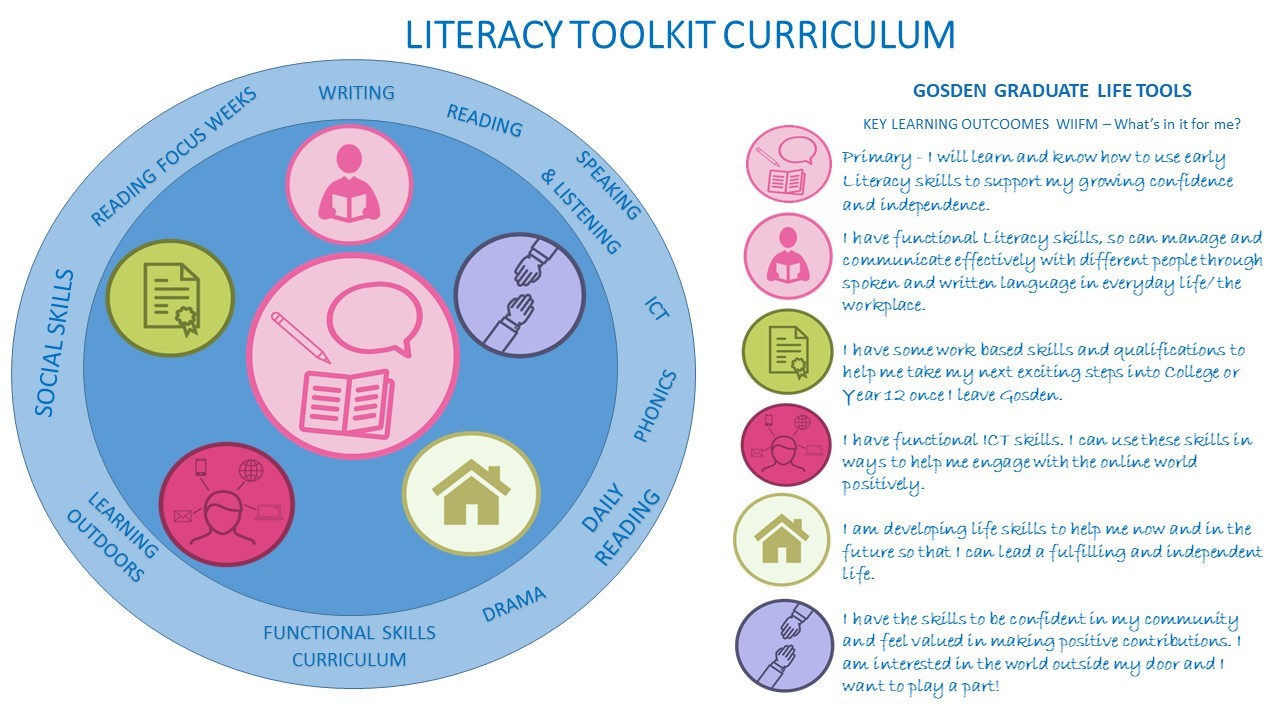
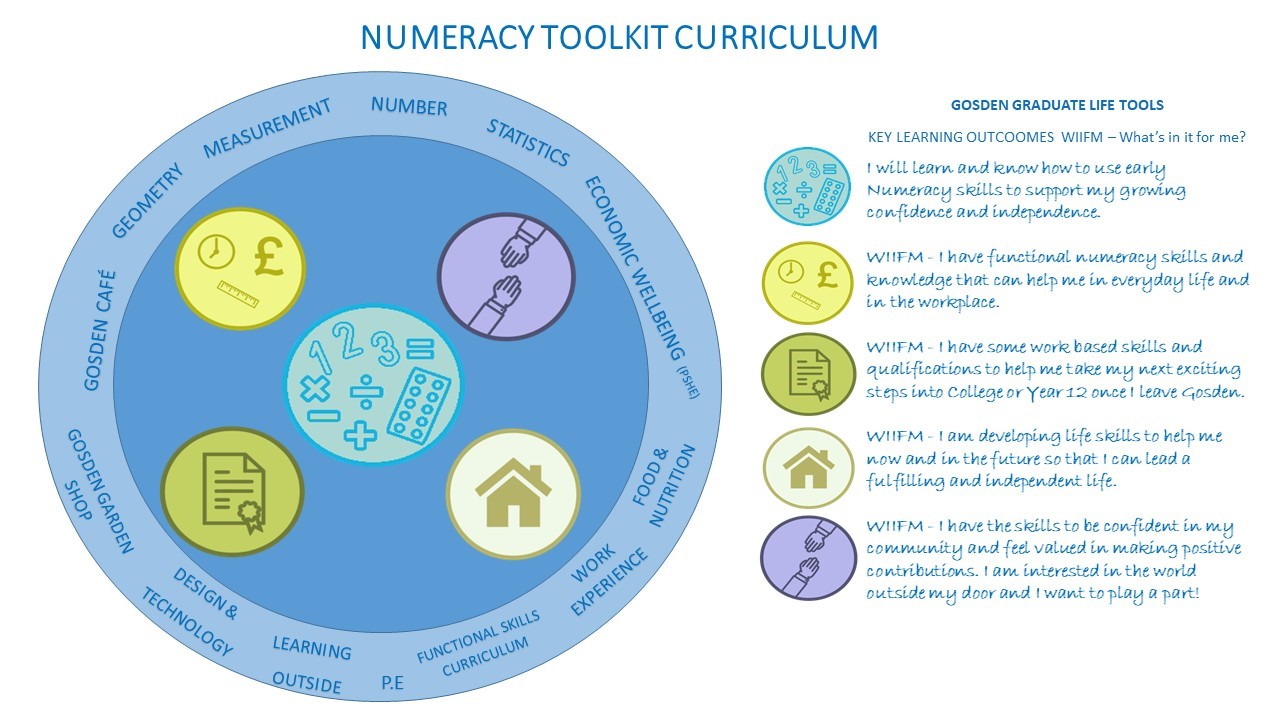
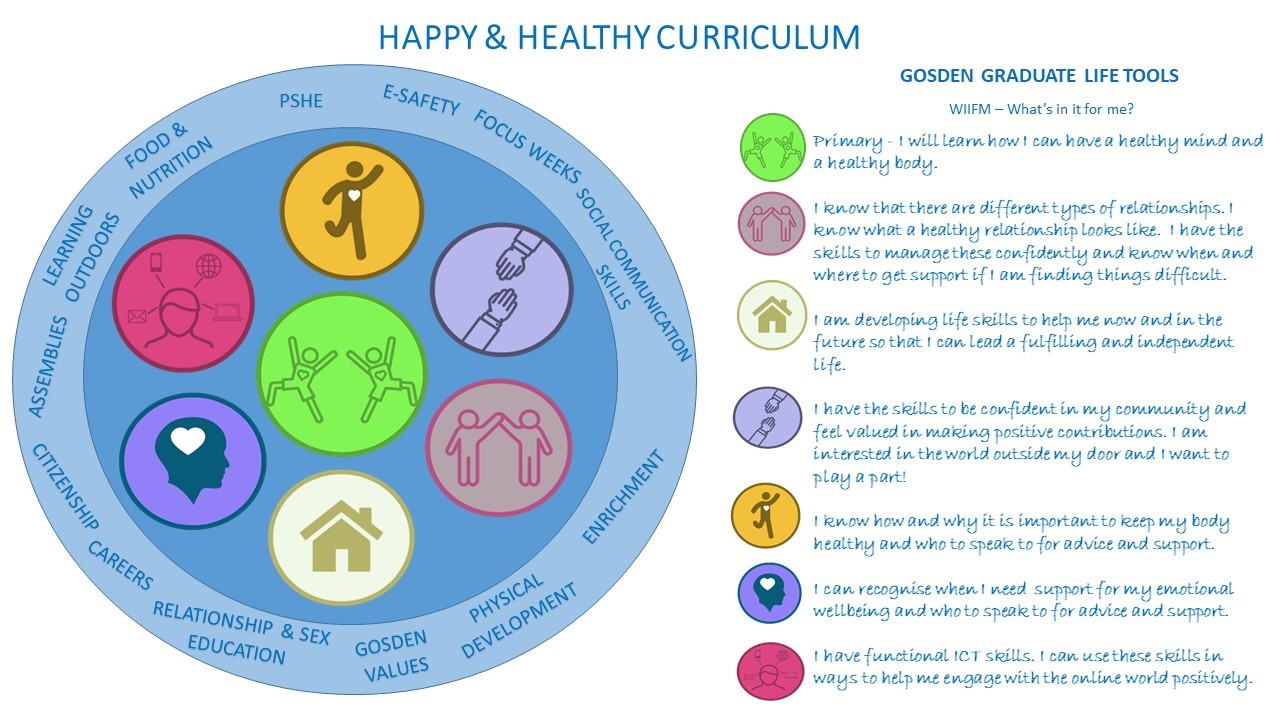
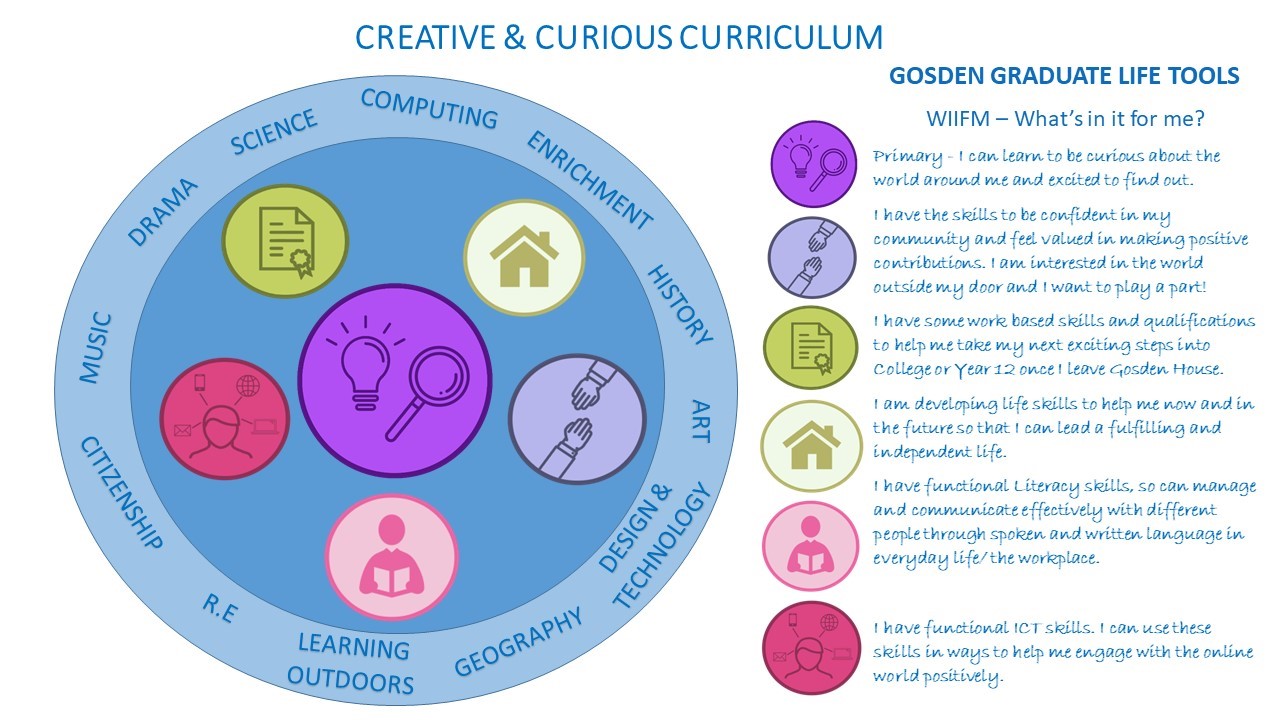
To ensure learners are equipped for future challenges, our philosophy centres on developing learning behaviours for life and this underpins all learning experiences. We embrace this as Building Learning Power within school and in Primary, the language for learning is based on Learning Habits and in Secondary, Learning Muscles, enabling learners to understand and articulate their learning. Building Learning Power is implicit in our learning culture, from planning through delivery to celebration.
The Primary Department’s Learning Habits

The Secondary Department’s Learning Muscles

Gosden House acknowledges the importance of Quality First Teaching as laid out in our ‘Gosden Standards’. We identified the need for an agreed, bespoke guidance document that supports us in ensuring best outcomes for learners, created collaboratively with all staff. Pedagogy incorporates enquiry-led learning, the importance of learning outdoors and child-led learning. Both our classroom and outdoor environment support these approaches to teaching and learning. As a learning staff, we have a culture of openness and investment in people, seen in the desire to embrace new ideas and support and learn from the newest to the profession as this contributes to a rich curriculum. Through our relational approach, pedagogy and curriculum we ensure that we build confident learners with resilience, curiosity and a sense of who they are.
How do we measure effectiveness?
In line with the ethos at Gosden House, we believe that a successful curriculum develops the whole child, prioritising personal development and a love of learning. To ensure effectiveness, we gather and value both qualitative and quantitative data and this informs our strategic decisions related to teaching and learning. We believe in a distributed leadership model, with collaborative, professional discussions ensuring we put the learners at the centre of our curriculum decisions, enabling our future Gosden Graduates to reach their potential.
Key Approaches
- Pupil Progress Planner document - details our processes for collecting, analysing and sharing progress data. Data is formally analysed at mid and end of year but is under constant review. Individual pupil progress meetings, based on these data collections, identify potential barriers to learning and enable actions are planned. In order to preserve learning at transition points, yearly teacher to teacher meetings are held.
- Senior Leaders, Subject Leaders and Champions are involved in monitoring the quality of teaching and learning, ensuring sufficient breadth and that learning experiences are relevant, challenging and meaningful. This is conducted through Learning Looks, Learning Walks, Evisense, learning observations, learner/parent and staff surveys which inform Action and Development Plans.
- A collaborative moderation model provides both for quality assurance but also for sharing of good practice and collective solution finding for identified barriers to engagement.
- In monitoring progress of the whole child, we ensure that the curriculum supports all four areas of need. Progress can be assessed through tracking attainment of pupil targets (linked to EHCP and Learning Habits/Muscles) and the Annual Review process.
- KS4 accredited qualifications and our vocational offer prepare learners for transition on from Gosden. Our knowledge of the young people as well as destination data guides learners’ learning journey, ensuring an ambitious route towards independence.
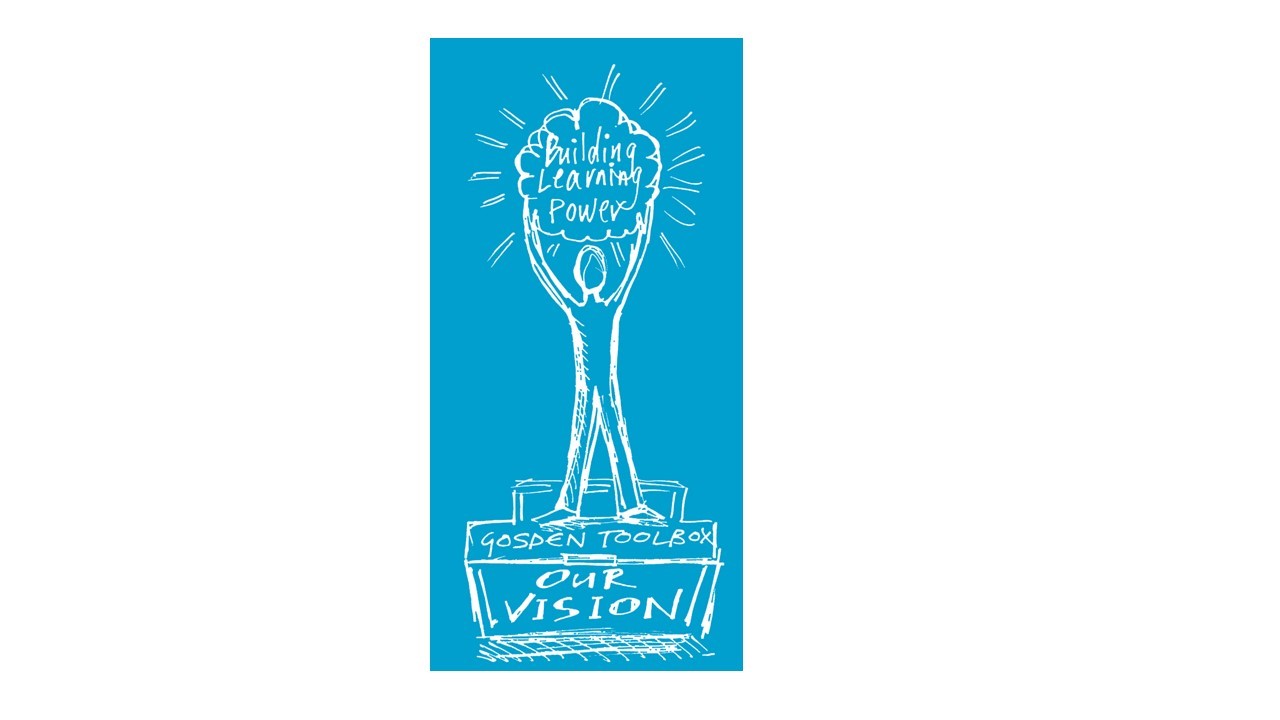
However, the true measure of effectiveness is sharing our Gosden Graduate success in the culmination of their learning journey, as they take their confident next steps in their community.
Curriculum Intentions – Updated March 2025
-
- Science-Curriculum Intent Nov 24
- RE - Curriculum intent 24 update new SACRE
- PSHE - Curriculum Intent 24
- PE - Curriculum Intent 24-25 V1
- Numeracy - Curriculum Intent 24
- Music - Curriculum intent 24
- MFL - Curriculum Intent 24
- Literacy - Curriculum Intent 24-25 V1
- Learning Outside the Classroom and Forest School - Curriculum intent 24-25
- History - Curriculum Intent 24-25 V1
- Geography - Curriculum Intent 24
- Early Years - Curriculum Intent 24-25 V1
- DT Curriculum Intent 24-25 V1
- Creative Arts - Curriculum Intent 24
- Computing Curriculum Intent 24 (1)
- Careers - Curriculum Intent 24 updated

